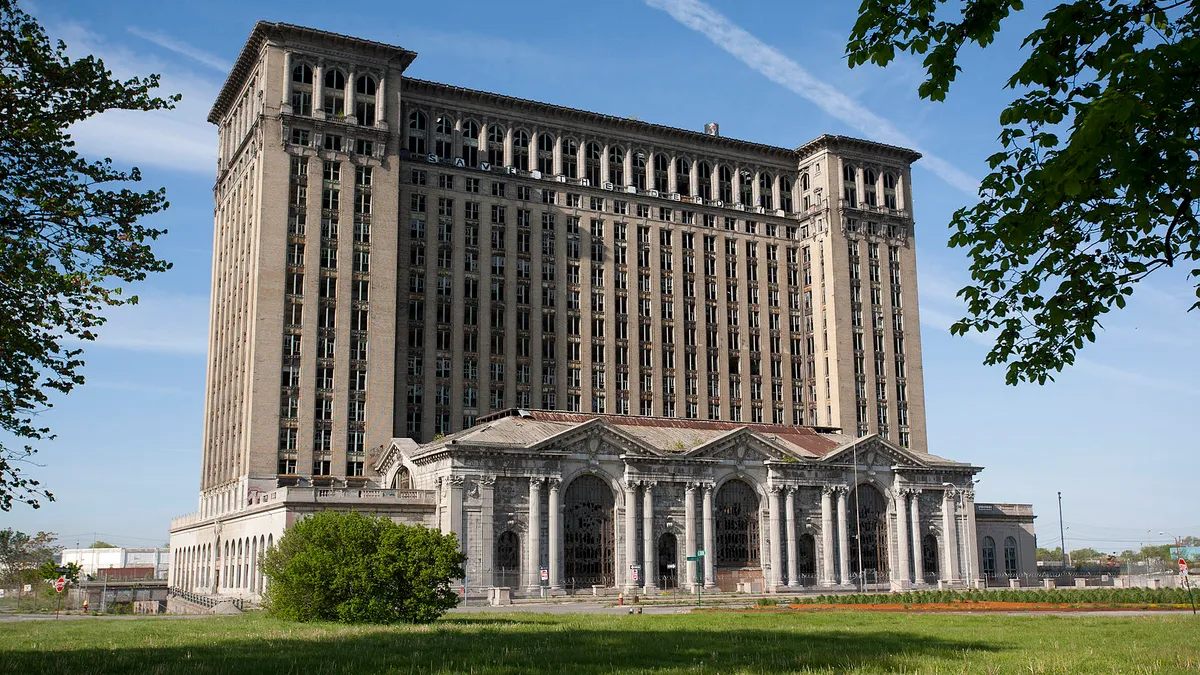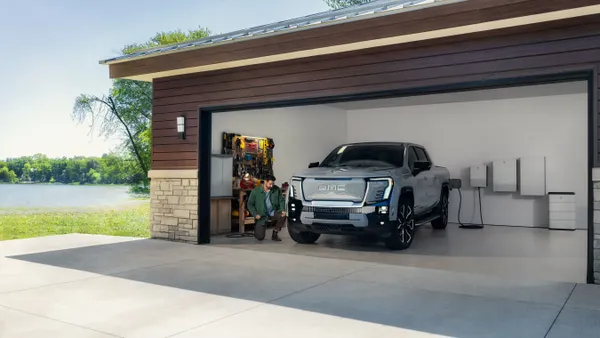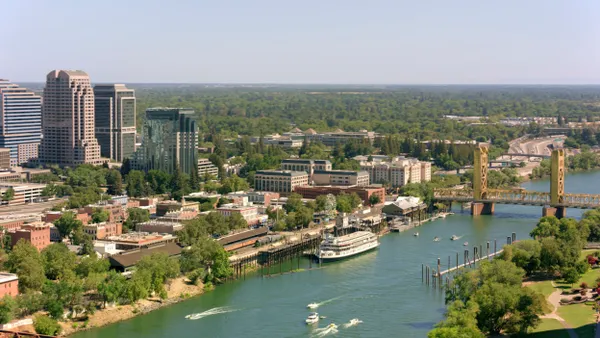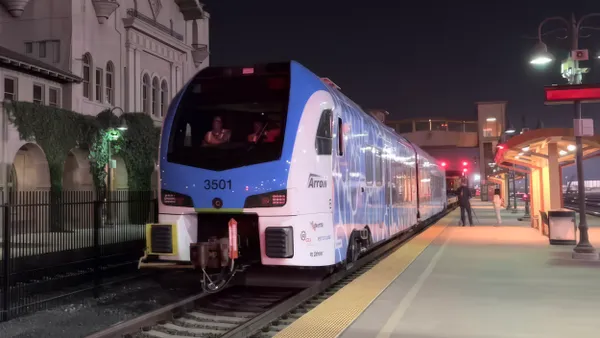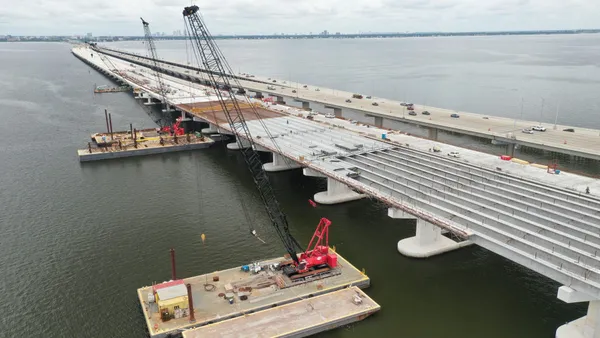UPDATED, Feb. 3, 2020: The City of Detroit announced three winners of the City:One Michigan Central Station Challenge, a "crowd-sourcing platform" created by Ford to improve mobility in Detroit-area communities.
The winners are: Mercy Education Project, a nonprofit that proposed "Rock City Mobility Stations" to increase access to mobility options; AbleLink Smart Living Technologies, a solutions provider that proposed an improved transportation network for disabled communities; and a team comprised of the Downtown Detroit Partnership, DTE Energy and local artists, which will work to improve safety and walkability in the downtown area.
Drumroll please.... ????????????
— City:One (@movefreely) January 31, 2020
Congratulations to the winners of our Michigan Central Station City:One Challenge. @DTE_Energy and @DowntownDet, @AbleLinkTech, and @MercyEdProject have all received pilot funding to take their #mobility solutions to the next level. #CityOne pic.twitter.com/9ZeHgdqL7e
The winners will split $250,000 in funding to test their mobility proposals in the communities surrounding Michigan Central Station.
Dive Brief:
- Ford will seek crowdsourced ideas to improve mobility in Detroit’s Corktown neighborhood around the historic Michigan Central Station as part of its City:One mobility challenge.
- The eight-month challenge — run with the city of Detroit and the state program PlanetM — is looking for ways to make biking and walking easier in the neighborhood and make Corktown more accessible to other destinations. Applicants can also submit ideas on how to bring daily services to residents who do not have easy transportation access.
- The automaker will select 12 finalists for pilot tests, backed by a $250,000 fund and an additional $78,000 in stipends. Ideas can be submitted through the challenge website, with finalists selected in October.
Dive Insight:
The City:One competition, previously known as the City of Tomorrow Challenge, prioritizes ideas that come from neighborhood residents. The winners of previous challenges include an app offering safe transportation options for night shift workers and a platform to organize school pickups.
The challenge centers around Michigan Central Station, the 500,000-square-foot, 18-story depot purchased by Ford last year. The building will act as a hub for Ford’s autonomous and electric research, which seeks to use Corktown as a "campus" for road tests. Ford partner Argo AI said earlier this month that it would expand testing to the neighborhood.
As part of the purchase, Ford also agreed to invest $10 million into the surrounding neighborhood, including home repair loans and infrastructure improvements, according to Crain’s Detroit Business. The City:One challenge will be part of that investment, and will also inform the Greater Corktown Neighborhood Framework Plan, a broader transportation vision.
With Ford seeking to rapidly integrate AVs into the mobility mix, getting input and ideas from residents could be valuable to realize the full benefits of the technology.
Ford’s City:Challenge platform started in Pittsburgh, Miami-Dade County and Grand Rapids, MI, and has also sought applicants in Indianapolis and Mexico City.


